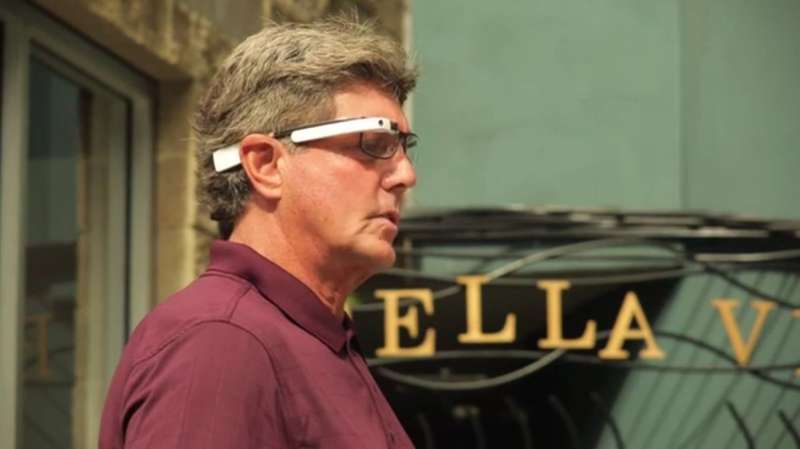January 10, 2017 weblog
Visual interpreter for the blind uses smart glasses

(Tech Xplore)—Shopping for clothes and groceries, finding a seat on the train: some of the many tasks we take for granted unless we are among the blind and low vision people who would like to lead more independent lives.
Aira (pronounced eye-ra) aims to step in with personalized service. This service involves smart glasses and connecting to a person serving as the agent, who can see the person and talk that person through the steps and movements required to reach the desired destination.
The video shows a man who has learned how to confidently navigate the streets of San Diego. He walks with a cane. Though he manages well, said the video, there are certain situations where he can get into trouble (sidewalk closed sign which his cane comes up against).
Fortunately he is wearing his Aira smart glasses, said the video. When he senses he is in a terrain with which he is unfamiliar or his cane tells him with information he still can't discern, he activates the smart glasses with his hand. His agent sees what he is about to confront and tells him how to proceed.
The system involves a certified agent, trained in aiding such people when they tap their Aira smart glasses.
The agent works with a mission control style dashboard where she can see what the person is looking at and location, from Google Maps. The man turns and Chloe, his agent in the video, can orient him by seeing what is going on around him. Step by step, scene by scene, she guides him safely to where he needs to go, a restaurant to meet his friend, navigating by train and by foot with the help of the agent.
So what you have here is "remote assistive technology that connects the blind with a network of certified agents via wearable smart glasses and an augmented reality dashboard that allows agents to see what the blind person sees in real time."
Can Aira make headway as a visual interpreter for the blind? The team is inviting users to join an explore program for the device. You can be among the first to join this program
"We seek Explorers who are open to learning from failure, in addition to those who can provide constructive feedback and who are enthusiastic about being part of a team engaged in shaping a quality product for millions of blind and visually impaired persons."
According to the company, "The seeds for starting Aira were planted in 2014 when Suman Kanuganti and Yuja Chang struck up a friendship with a blind communications professional Matt Brock. This led them to begin discussing how Google Glass technology could be used to help the blind and visually impaired become more mobile and independent."
The device can be paired with the user's smartphone. A camera mounted on the device provides feedback for the agents so that they can guide the user.
Dominik Bosnjak of Android Headlines described the business model: The company's service can be purchased as a subscription "which includes a pair of smart glasses, a specific amount of time with Akira's agents, and all related data charges."
Dan Graziano in CNET: "Aira noted that this service isn't designed to replace traditional methods such as a guide dog or a white cane, but is instead meant to be used alongside them for specific tasks."
The glasses are available as part of a subscription plan. The amount you pay for packages for a plan depends on things such as minutes of access ordered. The Aira team's site spells out the various plan details, according to membership tier, and prices.
More information: aira.io/
© 2017 Tech Xplore




















